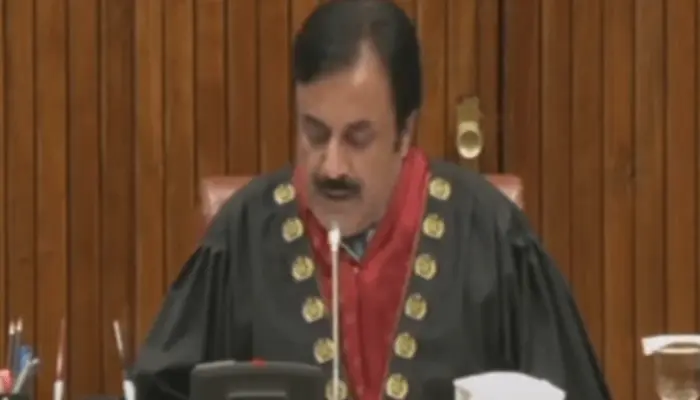The Senate session finally commenced at 11 PM, on Saturday evening, after a staggering delay of nearly eleven hours from its originally scheduled time. This session is pivotal as the federal government is expected to present a controversial constitutional amendment package, which includes proposals such as extending the Chief Justice’s term. Despite the urgency, the National Assembly session has yet to begin, compounding the sense of legislative disarray.
Initially set to resume at 12:30 PM, the Senate meeting faced multiple postponements, eventually being delayed to 8 PM before finally convening with 37 members present. Under the chairmanship of Deputy Chairman Syedaal Khan, the assembly opened amidst lingering uncertainty over the proposed amendments, which have generated significant political tension.
The draft legislation, which has been under discussion by a special parliamentary committee, aims to revamp judicial processes in Pakistan. Following public disclosure of proposals from the Pakistan Peoples Party (PPP) on October 11, an agreement was reached between the PPP and Jamiat Ulema-i-Islam-Fazl (JUI-F) on a unified draft. Despite this agreement, the ongoing delays in the Senate and the stalled National Assembly session raise questions about the government’s ability to secure the necessary support for these reforms.
Attaullah Tarar Asserted
Information Minister Attaullah Tarar asserted that the government possesses the requisite number of lawmakers to pass the 26th constitutional amendment. In a press conference, he emphasized the importance of achieving a broad consensus among political parties, noting that this level of consultation had not been seen in prior amendments. Tarar’s insistence on consensus-building underscores the contentious nature of the current political climate, with opposition parties expressing skepticism regarding the government’s intentions.
Amid these discussions, Defence Minister Khawaja Asif also stressed the need for collaboration across party lines. He warned that the integrity of parliament must be maintained against encroachment by the judiciary, reflecting broader concerns regarding the balance of power in Pakistan’s governance. Asif’s remarks reveal an urgency to protect parliamentary supremacy in the face of perceived overreach by the judiciary.
Serious Allegations from Opposition Parties
However, opposition parties have raised serious allegations of coercion. Omar Ayub, Leader of the Opposition in the National Assembly, claimed that seven lawmakers from the Pakistan Tehreek-e-Insaf (PTI) were “abducted,” casting a shadow over the legitimacy of the legislative process. This claim resonates with broader accusations from various opposition figures who allege intimidation tactics are being used to secure votes for the proposed amendments.
The political landscape remains fraught as Bilawal Bhutto-Zardari, Chairman of the PPP, asserted that his party is fully aligned with JUI-F on the judicial reform agenda. He urged for a unified approach, warning that failure to reach a consensus could lead to significant repercussions for parliament’s integrity. As the night unfolded, the Senate session highlighted the complexities and tensions surrounding legislative procedures, with implications that may extend far beyond the walls of parliament.
Follow us on Google News, Instagram, YouTube, Facebook,Whats App, and TikTok for latest updates
